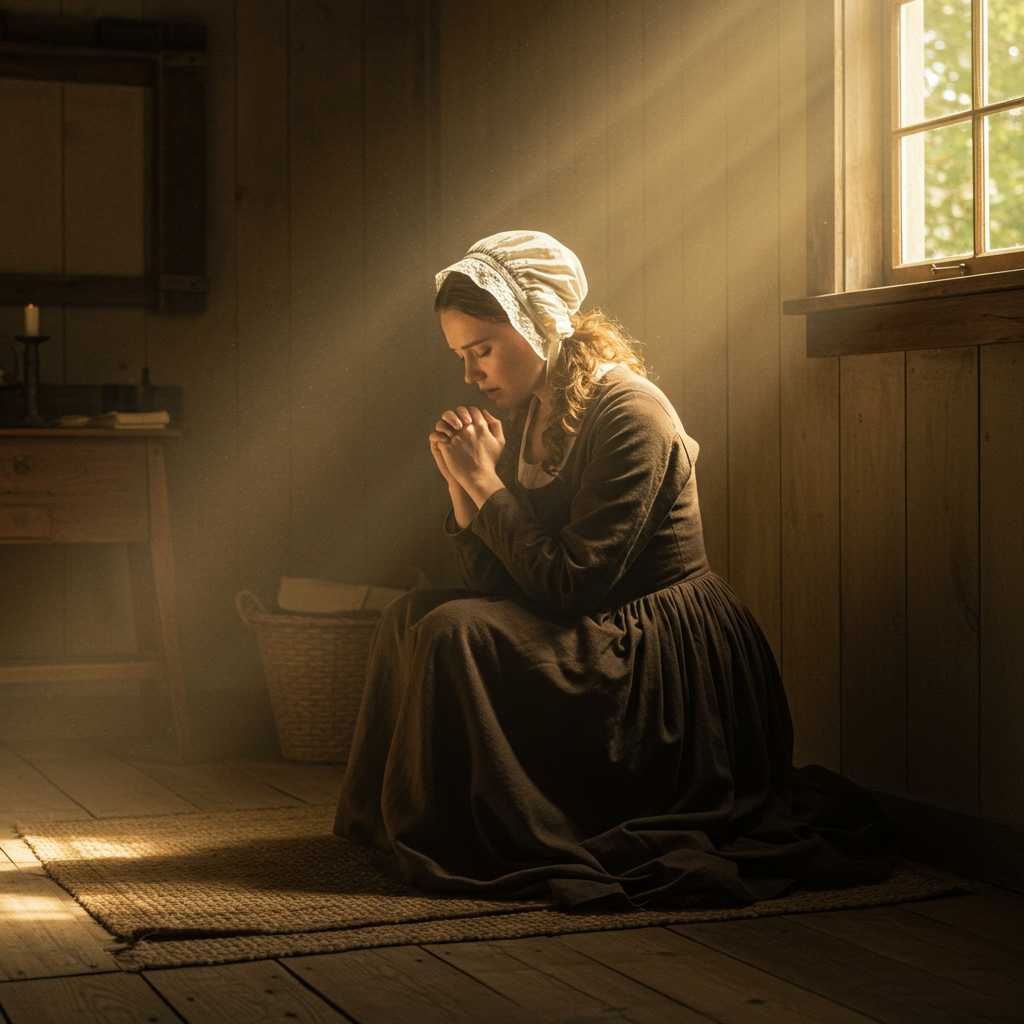2 Poems by Anne Bradstreet
1612 - 1672
Anne Bradstreet Biography
Anne Bradstreet, often hailed as America's first published poet, emerges as a pivotal figure in early American literature, her life and work bridging the Old World and the New. Born Anne Dudley in 1612 in Northampton, England, she was the daughter of Thomas Dudley, a steward of the Earl of Lincoln. Her privileged upbringing afforded her access to an extensive library, nurturing a love for literature that would shape her future as a poet.
Bradstreet's early life was steeped in Puritan ideology, a religious framework that would profoundly influence her writing. At the tender age of sixteen, she married Simon Bradstreet, a man who would later become governor of the Massachusetts Bay Colony. This union marked the beginning of a lifelong partnership that would endure the trials of colonial life and inspire much of her poetry.
In 1630, Anne Bradstreet, along with her husband and parents, embarked on the arduous journey to the New World aboard the Arbella as part of the Winthrop Fleet. The voyage, lasting eleven weeks, was a transformative experience for the young poet. Upon arrival in Massachusetts, Bradstreet faced the harsh realities of colonial life – a stark contrast to her comfortable existence in England. The wilderness of the New World, with its unfamiliar landscapes and challenges, would become a recurring theme in her poetry.
Despite the demands of colonial life and her role as a mother to eight children, Bradstreet continued to nurture her passion for poetry. Her verses, often composed late at night by candlelight, reflected her deep faith, her love for her family, and her struggles with the physical and spiritual challenges of her new life. Her work is notable for its intimate tone and its exploration of themes such as nature, religion, and the human condition.
Bradstreet's poetry was first published in 1650, without her knowledge or consent, in a volume titled "The Tenth Muse Lately Sprung Up in America." Her brother-in-law, John Woodbridge, had taken her manuscripts to England, where they were published. This collection, which included poems on diverse subjects ranging from history and politics to personal reflections, established Bradstreet as a significant literary figure in both the Old and New Worlds.
The publication of "The Tenth Muse" was a landmark event in American literary history. It not only made Bradstreet the first published poet of the New World but also challenged prevailing notions about women's roles in society. In an era when women's voices were often silenced or dismissed, Bradstreet's poetry stood as a testament to the intellectual and creative capabilities of women.
Bradstreet's later works, many of which were published posthumously in 1678 as "Several Poems Compiled with Great Variety of Wit and Learning," reveal a more mature and introspective poet. These poems, including "To My Dear and Loving Husband" and "Before the Birth of One of Her Children," are characterized by their emotional depth and personal nature. They offer intimate glimpses into Bradstreet's inner life, her fears, joys, and contemplations on mortality.
Throughout her life, Bradstreet grappled with the tension between her Puritan faith and her artistic sensibilities. Her poetry often reflects this struggle, exploring themes of divine providence, the transience of earthly pleasures, and the pursuit of spiritual fulfillment. Yet, even as she adhered to Puritan doctrine, her work exhibits a sensuality and an appreciation for the physical world that sets her apart from many of her contemporaries.
Bradstreet's life was marked by both personal triumphs and tragedies. She endured numerous hardships, including the destruction of her home by fire in 1666, an event she poignantly described in her poem "Upon the Burning of Our House." Despite these challenges, she maintained a resilient spirit and a deep commitment to her art.
As a mother and a poet, Bradstreet left an indelible mark on American literature. Her influence can be traced through generations of American writers, particularly women poets who found in her work a pioneering voice that validated their own literary aspirations. Her poetry, with its blend of classical allusions and personal reflections, laid the groundwork for a distinctly American poetic tradition.
Anne Bradstreet died on September 16, 1672, in North Andover, Massachusetts, leaving behind a rich legacy of poetry that continues to be studied and admired today. Her life and work offer a unique window into the intellectual and spiritual life of colonial America, as well as the universal human experiences of love, loss, and faith.
In the annals of American literature, Anne Bradstreet stands as a testament to the power of the written word to transcend time and place. Her poetry, born in the crucible of colonial America, continues to resonate with readers centuries later, offering insights into the human condition and the enduring power of artistic expression in the face of adversity. As America's first published poet, she blazed a trail for countless writers to follow, her verses echoing through the corridors of literary history and inspiring generations of poets to find their own voices in the New World.
This text was generated by AI and is for reference only. Learn more
Username Information
No username is open
Unique usernames are free to use, but donations are always appreciated.
Quick Links
© 2024-2025 R.I.Chalmers (V2Melody).

All music on this site by R.I.Chalmers (V2Melody) is licensed under a Creative Commons Attribution-NonCommercial 4.0 International License.
Attribution Requirement:
When using this music, you must give appropriate credit by including the following statement (or equivalent) wherever the music is used or credited:
“Music by R.I.Chalmers (V2Melody) – https://v2melody.com”
Support My Work:
If you enjoy this music and would like to support future creations, donations are always welcome but never required.
Donate


